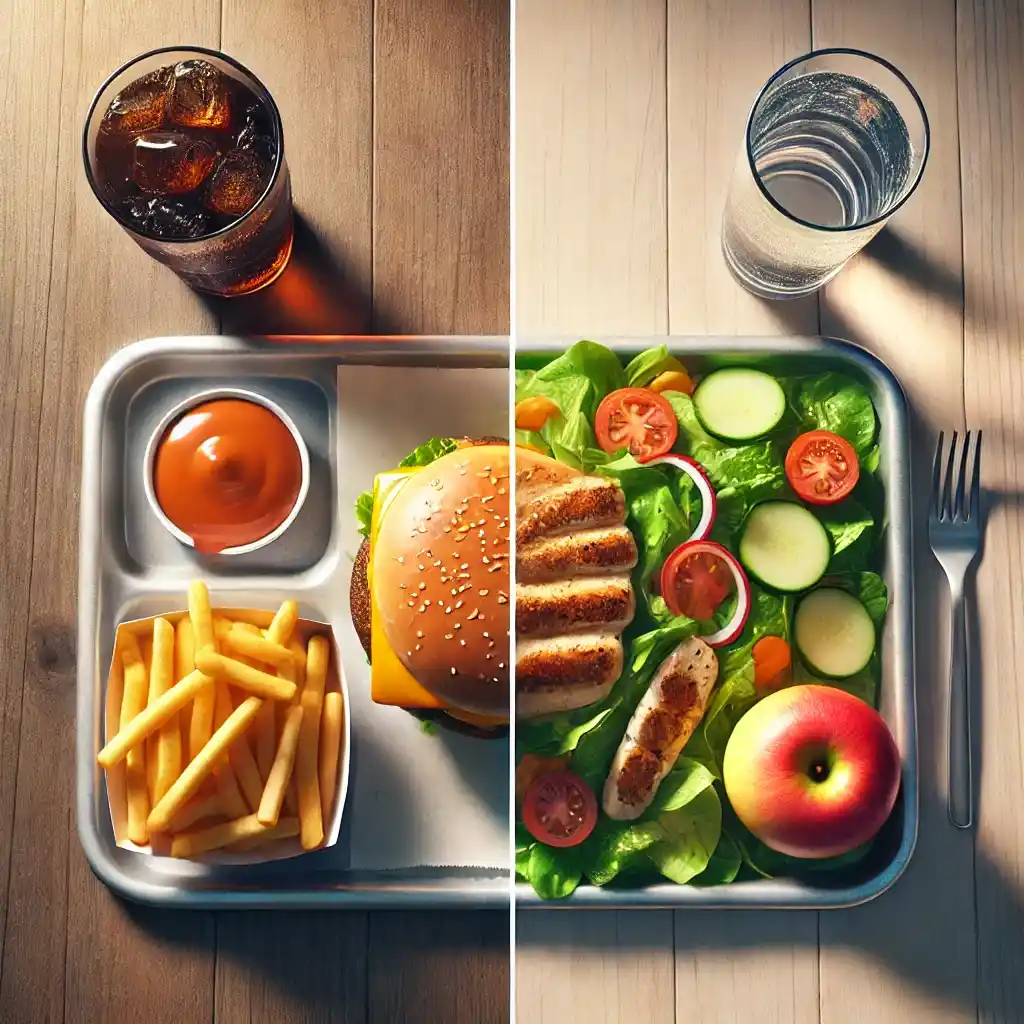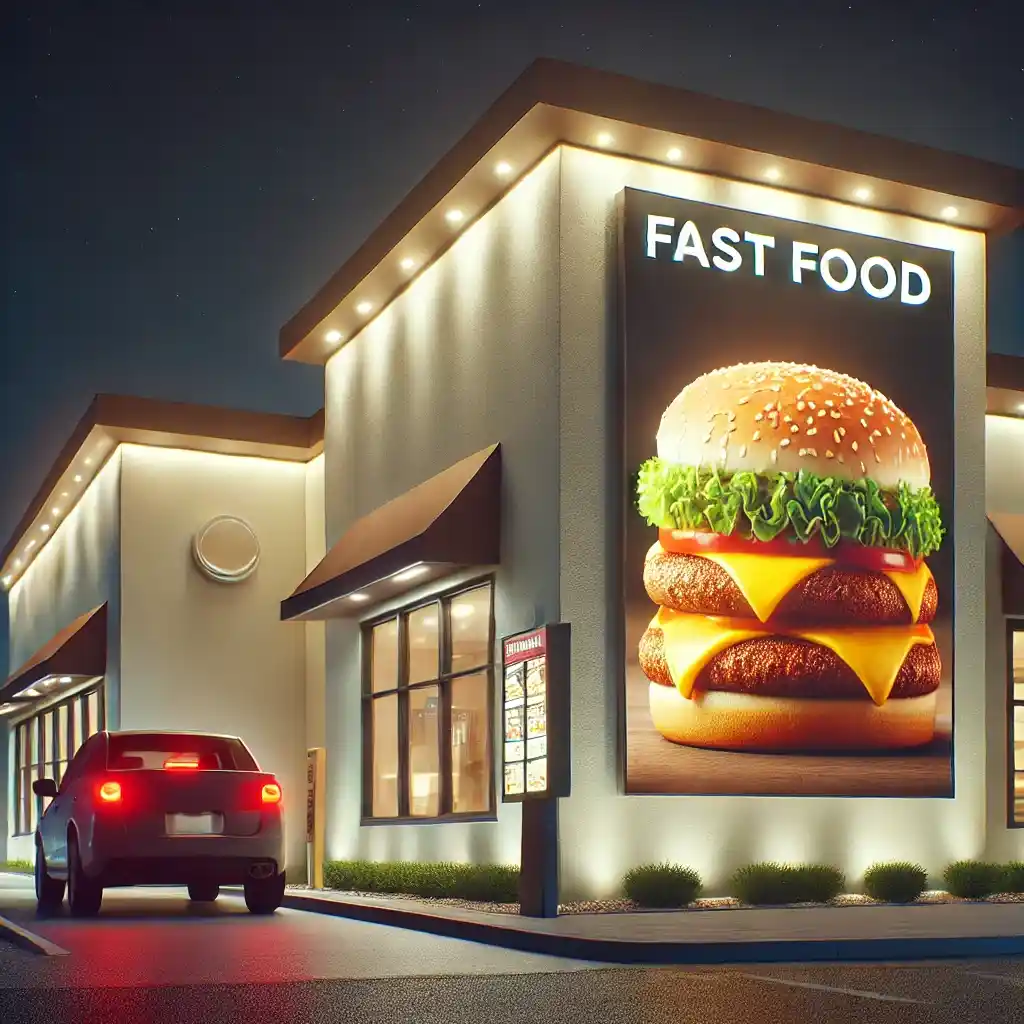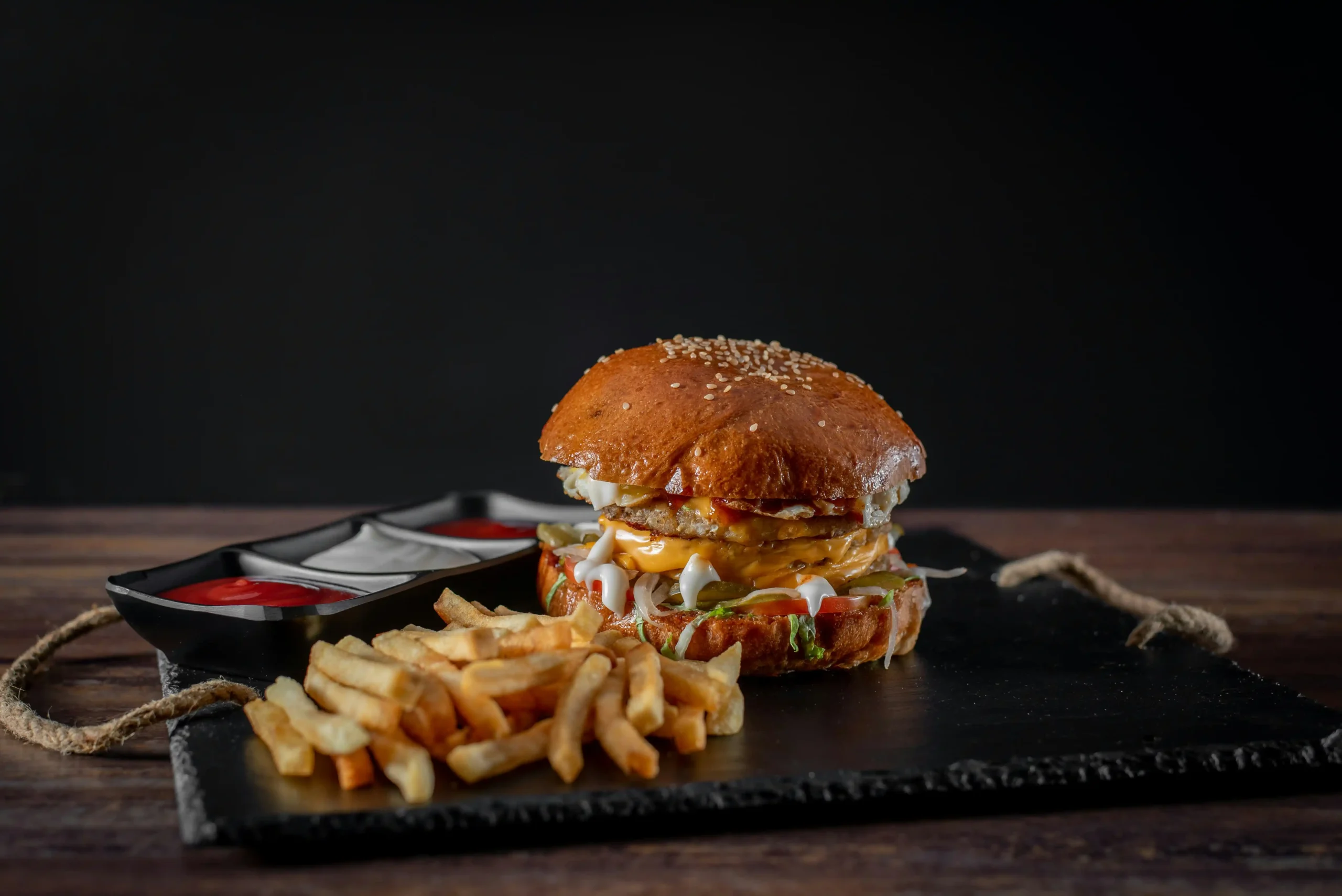Disclaimer: This content is for informational purposes only and should not replace professional medical advice.
Let’s be real—fast food is built to win. It’s cheap, fast, smells amazing, and it’s literally everywhere. After a long day, who wants to cook when a burger takes 5 minutes?
The issue isn’t grabbing a burger once in a while. The problem is when fast food becomes your go-to. That’s when convenience starts draining your energy, focus, and long-term health.
The Hidden Costs of “Cheap and Easy”

Fast food may feel like a bargain at first—but your body ends up paying the real price. Here’s what really happens when junk food becomes your norm:
- Energy crashes: Fast carbs spike your blood sugar, then drop it like a rock. You’re left tired and foggy.
- Unwanted weight gain: Fast food packs calories your body didn’t ask for.
- Chronic inflammation: Fried and processed foods trigger long-term stress inside your body.
It’s like putting cheap gas in a performance car—it’ll run, but not well.
Why Fast Food Hooks You

Fast food isn’t just food. It’s a comfort system engineered to make you crave more:
- Bright colors
- Catchy jingles
- Smell of fries before you even walk in
Add stress, long days, and zero time to cook—and suddenly, a combo meal feels like therapy.
Sure, it’s comforting. But so is hitting snooze on Monday… and neither builds a strong foundation.
What Fast Food Really Does to Your Body
Your body can handle a drive-thru meal now and then. But when it becomes routine, here’s what you’re really dealing with:
- Blood sugar rollercoasters → Big spikes and crashes = constant cravings and low energy.
- Gut health problems → Low fiber = slow digestion and discomfort.
- Silent long-term risks → Think heart disease, type 2 diabetes, and high blood pressure. These build up over years of “just one more combo.”
Smarter, Still-Easy Alternatives
Convenience doesn’t have to mean damage. There are healthier fast options that actually support your lifestyle.
Meal Kit Services (e.g., HelloFresh, Blue Apron)

- Fresh ingredients + easy recipes
- Less prep, more control
- Ideal if you still like cooking but want to save time
Ready-to-Eat Healthy Meals (e.g., Freshly, Factor)
- Fully cooked, just heat and eat
- Fast food speed, better nutrition
Plant-Based Options (e.g., Purple Carrot)
- Great for anyone trying plant-forward eating
- Balanced, nutrient-rich, and convenient
They’re not $1 deals—but they give you back your energy, time, and long-term health. That’s ROI that matters.
How to Eat Fast Food Without Letting It Own You
You don’t need to swear off fast food for life. The goal is balance, not guilt. Here’s how to be smart about it:
- Pick your battles → Go grilled, not fried. Skip the “double bacon” add-ons. Downsize the drink.
- Plan your weak spots → Late-night cravings? Keep Greek yogurt, protein bars, or nuts at home.
- Use meal services as a safety net → If you’re stocked with real food, fast food won’t be your only option.
- Treat it, don’t repeat it → One burger? Cool. Five in a week? That’s a problem.
Consistency Beats Perfection
You don’t need to live on salad and sparkling water. Just aim to make 80% of your meals solid. The other 20%? Enjoy it without guilt. Even the World Health Organization emphasizes that a healthy diet is about balance and consistency—not perfection.
If your lunch was a heavy one, keep dinner light. If you’re going to eat out, make it lunch—not a late-night splurge that wrecks your sleep.
Bottom Line: Fast Food Without the Burnout
Fast food is tempting because it feels like a shortcut. But when shortcuts become your norm, your body sends the bill—with interest.
Here’s the truth: modern meal kits and ready-made healthy meals are changing the game. You can still get fast, easy food without trashing your energy or health.
Start small. Make one better choice this week. Then do it again.
Fast food wins when you don’t have a plan. Build a better routine, and suddenly you’re the one in control.
If this post saved you time, money, or prevented questionable life choices… you can tip below.
This article is for informational purposes only and is not a substitute for professional medical advice, diagnosis, or treatment. Always consult a qualified healthcare provider before making any decisions about your health or starting a new regimen.
Photos by Unsplash

